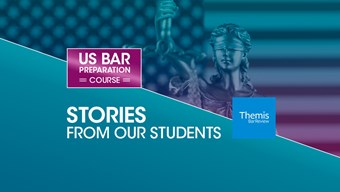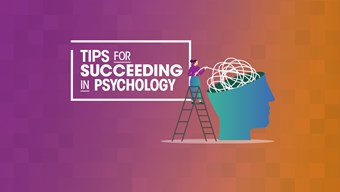After thriving in various industries, these individuals chose to embrace fresh challenges by pursuing further education and skill development. Awarded our Career Changer Scholarship, they were able to start the next chapter in working toward their goals. We recently caught up with them to delve into their career trajectories and the motivations behind their choices.
By Elsa Tatam. Published 24 April 2024.
Jamie Rodney worked for ACORN the Union as a Bradford Branch Organiser before deciding to retrain part-time MA Law (Conversion) with us at our Manchester campus.
“My motivation for becoming a lawyer is driven by the same passion for helping people who have influenced my career to date. I've spent most of the past four years working as a representative for student, community, and workplace unions, advocating for constituencies as diverse as students in St Andrews, Domino's drivers in Leeds, and social housing tenants in Bradford. Whilst I’ve never been inside a courtroom, I believed that with a legal education, I could put the skills I have to good use.
My various roles have made evident to me the deep levels of injustice in this country- from the housing association that put tenants in a tower block filled with broken asbestos tiles, to the fast-food boss who made millions from the slave labour of migrant workers. All too often, these situations happened because the people being exploited didn’t know the law, and the people doing the exploiting thought they were above it. I want to do my bit in ending this and practising law will enable me to do so.
Throughout my career, I’ve also learned softer transferable skills that are equally important. As a union organiser, one needs to adapt quickly under pressure. Nothing quite sharpens your communication skills like having to knock on doors in a council estate, speak to an MP, and write a press release all in one day- knowing that the wellbeing of vulnerable people could depend on the outcome of any of these actions. I believe that this will be good preparation for the fast-moving, code-switching world of law.
My most important takeaway from life as an organiser, however, is what I've learned about empathy. Many union members I worked with were from difficult-to-reach demographics: people with severe mental health issues, people with poor English, and people from communities that distrusted outsiders. I managed to build relationships, learning how to be supportive without being patronising, and how to build trust while sticking to professional boundaries. The manifestation of my skills translated into launching a branch of our union in Bradford (six months ahead of schedule). As a result, I was given leadership responsibilities usually reserved for people multiple levels above me in the organisation.”
Georgina Hill was working at Great Ormond Street Hospital NHS Foundation Trust as a Senior Communications and Engagement Officer for Innovation. She is now studying MA Law (SQE1) full-time at our London Moorgate campus.
“I have worked in communications in scientific research organisations for five years. I have supported fundraising, influenced policymaking and worked with the media. However, I am currently on the fringes of making the impact I wish I could. As a legal professional, it will be a privilege to move from reporting on corporate developments to shaping them. I look forward to undertaking pro bono legal work. I have been dedicated to volunteering throughout my life: at university, I was the Vice Chair for Welfare, which involved co-ordinating events, campaigns, and advocating for students in university policy decisions. Recently, I have facilitated activities with a youth theatre group. As a legal professional, I can continue to support communities and individuals through legal aid.
Whilst working in organisations that fund and conduct research and innovation in healthcare, I have learnt how early-stage ideas are tested and commercialised to bring products and services to market. I have also managed public relations and marketing campaigns that influence the market, and while working at the Stroke Association, I discussed clinical trials and medical regulatory processes with stroke survivors, charity donors and policymakers. Whilst working with the charity, I have also been able to raise money for the charity and deliver on its mission to improve care for people affected by strokes.
Now working at Great Ormond Street Hospital for Children, I get to lead staff engagement initiatives to introduce technologies, such as artificial intelligence into health services. I regularly arrange meetings and focus groups with staff depending on their preferences and go on to report their issues and ideas on technology to influence the hospital’s innovation and technology strategy. I have also had the opportunity to lead complex communications campaigns involving many stakeholders with articles published across multiple communications channels such as press releases, social media, and video.”
Wai Man Chung is studying our MA Law (SQE1) course full-time at our London Bloomsbury after working in Armed Conflict Location & Event Data Project in East Asia Pacific Assistant Research Manager.
“After working over seven years as a journalist, aid worker, and researcher, I have realised that pursuing a career as a solicitor is the most significant decision that I can make to drive impactful social change aligned with my long-term career goals. My goal is to become a solicitor who protects the legal rights of individuals in armed conflicts. My interest in law began as an aid worker serving in Iraq. I witnessed millions of displaced people living in extreme conditions and lacking access to legal services, potentially impacting their ability to access humanitarian assistance and social protection. What struck me the most as an aid worker, was that I could not serve as a legal representative for gender-based violence survivors at risk of human trafficking and early marriage. At a macro level, legal assistance was often overlooked in crises, creating a gap in protecting the rights and safety of vulnerable groups in Middle Eastern countries and Greece, Turkey, Poland, and Romania, where I worked and volunteered. My experience has led me to identify that legal aid is urgently required to ensure protection and achieve durable solutions in humanitarian settings. I am determined to tackle these pressing global issues, which impact the existential risks of a large scale of people but are often overlooked by policymakers. I am genuinely motivated to pursue a high-impact career in the legal profession to make a positive impact in these areas.
I have built my career in various roles and disciplines, including media, academic, data research, and humanitarian intervention. As a current research professional at the Armed Conflict Location & Event Data Project (ACLED), I oversee armed conflicts across East Asia and the Pacific region. Before joining ACLED, I was an aid worker and journalist in Asia, the Middle East, and Central Europe, gaining hands-on experience in humanitarian intervention and conflict resolution. Field experience has provided me with exceptional knowledge of local perspectives. I have attained the essential skills and humble understanding of indigenous cultural contexts, allowing me to liaise effectively with stakeholders such as experts, UN agencies, and governments.”
Don’t let financial challenges stand in the way of your dream career. Find out more about our wide range of scholarships and bursaries.



